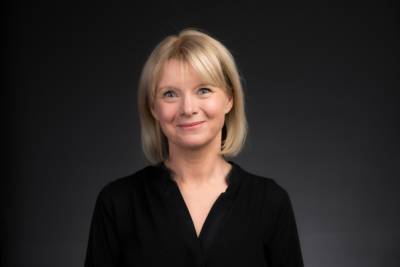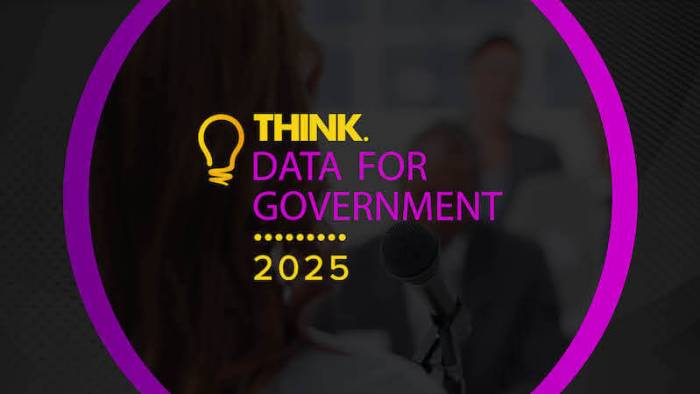Did you enjoy school?
Yes, I did. I’ve always been a social person, so the aspect of being with my friends every day was something I loved. Academically, I particularly enjoyed English, History and Science – specifically Physics. English was my true passion, and I loved to write, with a few of my poems even being published in local magazines.

That said, I developed a self-imposed mental block around Maths, convincing myself at primary school age that I wasn’t good at it. My teachers picked up on this, and it was reported back to my parents that I was perfectly capable in Maths and had the aptitude expected of my age.
Looking back, this was confusing for me and probably my first (unrecognised then) experience of imposter syndrome! All in all, though, school was a very positive experience that helped shape my curiosity and love for learning.
What qualifications do you have?
Alongside my GCSEs, I achieved an AS level in English Literature and a BTEC National Diploma in Business and Finance. I thoroughly enjoyed the BTEC course as it was project-based, allowing me to immerse myself in disciplines such as accounting, marketing and business law. While it was the 90s and things have evolved, the practical, applied nature of the BTEC course meant I could carry those learnings into the world of work, many of which still hold relevance today.
Has your career path been a smooth transition, a rocky road or a combination of both?
Outside of my family, my passion has always been my work and, whilst my career hasn’t followed a perfectly smooth path, it has very much been a journey of my own making. I’ve worked in various roles within the recruitment advertising industry, with a brief stint abroad as a head of entertainment for a tour operator, before moving into my current role in cyber.
Each career move has always been driven by that passion and a huge dose of curiosity. At the age of 20, after a year in full time work, I wrote a proposal to the managing director identifying the need for an administration manager to sit over the three client service teams to ensure there were efficiencies across the agency as they all worked in completely different ways. Throughout my career I have always been curious and looked for better ways to do things, so I have approached senior and board members with proposals to drive this for the business but also to support driving my own career.
What specific challenges do you see women facing in the industry?
Underrepresentation is a big factor. Walking into a room and not seeing anyone who looks like you can sometimes feel daunting, especially in a technical industry like cyber. It can amplify that inner imposter syndrome many of us already carry, and it can feel as though you need to prove yourself twice over just to belong.
I’ve also noticed that women can sometimes hesitate to put themselves forward for opportunities unless they feel they tick every box on the job description, whereas a male counterparts may apply regardless. This can hold women back from progressing into roles where we could thrive and add real value.
For me, moving into cyber after years in a different industry, the biggest challenge has been not letting the fear of “not being technical enough” stop me from contributing, asking questions, and sharing my perspective. The reality is, the industry needs a range of skills, and having diverse experiences, including from non-technical backgrounds, can add a valuable lens. From a technical point of view, I believe it’s vital when it comes to securing the UK from (cyber) harm. By having diverse thinking in your solutions means you can stay a step ahead of your adversaries. I am a real advocate for our organisation to move the dial slightly so the balance of women in tech roles at Avella, at least, is more even.
What is the best career advice you can give to others?
Be curious – always.
Curiosity has been the golden thread throughout my career, even when I didn’t realise it at the time. It’s what has led me to propose new roles within organisations, to ask questions that others might shy away from, and to embrace opportunities outside my comfort zone -even moving industries entirely.
You don’t need to have all the answers; you just need to be willing to ask the questions. Sometimes that means having the courage to challenge the ‘we’ve always done it this way’ mindset or to explore a path that feels daunting simply because it’s new.
Also, don’t underestimate the value of your unique perspective, even if you come from a non-technical background like I did moving into cyber. Your curiosity and willingness to learn can open doors you didn’t even know existed, and often, that fresh perspective is exactly what the industry needs.
If you had to pick one mentor that had the biggest influence on you, who would it be?
I have been exceptionally lucky that I do not have one specific mentor but several people who have had an impact or influence on me as I’ve moved through school, college and my career. More recently however, it has to be my colleagues. I am lucky to work with some exceptionally talented people; from a partner who was in the first cohort of becoming cybersecurity chartered in the UK, to my team who continually strive to learn and keep ahead of changes in policy in our industry. I am always learning – from my peers and from my team. This is having a fundamental influence on how I progress in my own career.
From where do you draw inspiration?
I would say my biggest inspiration has to be my 11-year-old daughter. Previously my drive was built from pure passion for my work and the need to continually look for ways for the companies I worked for, and for me, to do (things) better. Now I am a mother, this adds a whole new dimension into the mix! I aspire to set the best example I can of being a working mum; basically, I want to make her proud of me.
If you liked this content…
Additionally, as I am relatively new to the cyber industry, I have joined various peer groups, such as the Women in CyberSecurity (WiCyS). Whilst early days for me, I have found the women I have met at various events have provided a lifeline and support group in this fascinating, but heavily male dominated industry. It’s been nice to meet other women you can relate to and reminds me of the importance of community and professional growth.
What is the biggest challenge you have faced to date?
Despite being naturally outgoing and considered a go-getter, I have always struggled with imposter syndrome – a challenge that persists even now. This self-doubt often leads to over-preparation, striving for unattainable perfection, and, at times, procrastination.
Recognising that this is a self-imposed state rather than a reality has been crucial for me. Reading books like ‘The Imposter Cure’ by Dr Jessamy Hibberd and Mel Robbins’ ‘Let Them Theory’ have helped me to take stock and manage these feelings while continuing to perform at a high level.
What qualities do you feel makes a good leader?
Whilst it is considered a traditionally feminine trait, I would say that being empathetic is an important quality for a leader. I have always worked in professional services where the commodity we are selling to clients are the experience and time of our people. Ensuring therefore that your team can turn up as their best selves to work is vital and impacts directly to the bottom line. Having empathy as a leader is pivotal to enable this. More importantly however, it’s about being human, first.
Equally as important is to set an example for others to follow. I can be a hard task master, especially when it comes to delivering quality and value to our clients. I hold myself to the same high standards I expect from my team and believe in setting a clear, consistent example in the quality of work, always.
From a work viewpoint, what has the last 12 months been like?
One word – amazing! I moved into the world of cybersecurity under two years ago after a 25+ year tenure in various operational, new business and client service roles within the recruitment marketing industry. Whilst the role itself sat perfectly within my experience, I was aware that the learning curve of moving into a new industry would be a steep one – especially at the pace it continually moves. I was also acutely aware that my established support network groups I have been a part of throughout my years in recruitment marketing would no longer be as relevant. So, this felt like a leap forward as opposed to a step up at the time.
I joined though at the right time when the company was on the point of needing to make changes to ensure sustainable growth. It’s been busy, but equally amazing. As this was a newly created role, it’s played into my professional curious nature, perfectly as there’s was no previous playbook to work from. The biggest highlight for me in the last 12 months, however, is that we rebranded this year and run a highly successful launch party event which was a true team success.
Sometimes you have to take the leap to land when you truly belong!
What would you say are the biggest tech-based challenges we face today?
From my perspective, coming into cyber from a non-technical background, I would say the pace of change itself is a significant challenge. Technology evolves so rapidly that keeping up can feel like a full-time job, and it can be easy to feel overwhelmed, especially if you don’t come from a technical discipline.
Cybersecurity specifically faces the ongoing challenge of building resilience against ever-evolving threats while making it easy for people to engage with security in their day-to-day work. The NCSC often highlights that human error remains a large factor in cyber incidents, so ensuring people feel confident and informed about secure behaviours is crucial.
Another challenge is the skills gap in the sector, both from a technical and non-technical perspective. We need diverse thinking to tackle complex cyber problems, but the industry can unintentionally create barriers through jargon-heavy environments or a perception that you need to be a coder to contribute.
What can be done to encourage more women into the industry?
Visibility and representation are key. Seeing women in different roles within the industry helps to break the myth that you need to have a purely technical background to have a place in cyber.
Mentoring and peer support groups can make a huge difference too. I’ve found organisations like WiCyS and events for women in cyber invaluable for building confidence and community.
From a business perspective, we can encourage more women by actively reviewing our recruitment processes, using inclusive language in job descriptions, and focusing on the skills and mindsets needed rather than just years of technical experience. This is something I have first-hand seen the benefits of over my years of working in recruitment. Equally the NCSC highlights initiatives like CyberFirst which can also play a role in sparking interest in younger women, showing them that there is a place for them in the industry.
On a personal level, sharing our stories and pathways into the industry can help others see there isn’t just one route into cyber and that diverse backgrounds bring strength to the industry.
Give us a fact about you that most other people wouldn’t know.
I worked as a holiday entertainer in my mid-twenties for a couple of years and, as part of that role, I was a Christmas Elf escorting families on day trips to Lapland! They were long days, but incredibly magical (especially being a huge all-things-Christmas fan).








